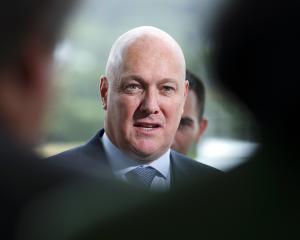Staff morale at the University of Otago remains in a sorry state.
Job satisfaction has been disappearing before what is seen as a culture of control and a lack of trust.
The drawn-out restructuring and the shared-services support system has added to workloads, frustration and disenchantment. Many academics feel anything but properly supported.
General support staff themselves have been buffeted the worst. Not surprisingly, many of the best left during and after the process.
A survey of staff two years ago found large numbers would not recommend working at the institution to their friends. A current survey is unlikely to find much difference.
While student numbers march forward, it feels to many as though the heart of the institution is suffering. By degrees, so to speak, staff become less motivated or leave. The core weakens and the reputation and underlying strength is eaten away.
Former vice-chancellor Prof Harlene Hayne has copped much of the criticism, as has the hierarchy generally, including the human resources department.
Funding pressures tighten the screws. Tough and unpopular decisions often have to be made in a place as large as the university. Programmes regularly need to be reviewed and often changed.
There are also persuasive arguments that the previous support system was too expensive.
Nevertheless, the destructive loss of feelings of empowerment, of loyalty, of confidence are marked and widespread.
No-one is going to do their best work or be creative under these circumstances.
This all made the selection of the new vice-chancellor crucial; it is here pulses of positivity are already emerging.
The appointment of Prof David Murdoch, due to start at the beginning of next year, might turn out to be the change required.
As the head of the university’s medical school in Christchurch, he is an insider and an employee who will know about the prevalent angst and the nature of current concerns. At the same time, he is from outside Dunedin.
The other short-listed internal candidate’s role in top-tier management counted against him, even if unfairly. Whatever his qualities, many staff would associate him with present woes. Winning staff over to new approaches would have been more difficult.
A release to staff about the appointment mentioned the word empathetic, and Prof Murdoch has a reputation for respect and civility while not lacking in strength.
Hopes must be that an efficient and effective Otago takes on its traditional university persona rather than fundamentally that of a teaching and research business.
Interestingly, Prof Murdoch is an academic leader from medicine like three predecessors, Prof Robert Aitken (the first vice-chancellor, from 1948-53), Sir Robin Irvine (1973-94) and Sir David Skegg (2004-11).
Just how much of the present structure can, should, or will be undone is questionable.
However, attitudes and cultures can change, and that can happen remarkably quickly with change at the top.
While vice-chancellor Dr Graeme Fogelberg was widely credited with securing a financial footing for the university, morale was also low towards the end of his time.
When Sir David took over, he immediately announced the abandonment of the grand-entrance plan and the saving of the historic Leith footbridge.
A switch was flicked as he took staff along with him.
Although Prof Murdoch might not have a similar circuit-breaker on hand, many are cautiously hoping for a turnaround in atmosphere and approach.
They want to feel an integral part of their university — trusted and proud.












